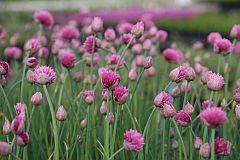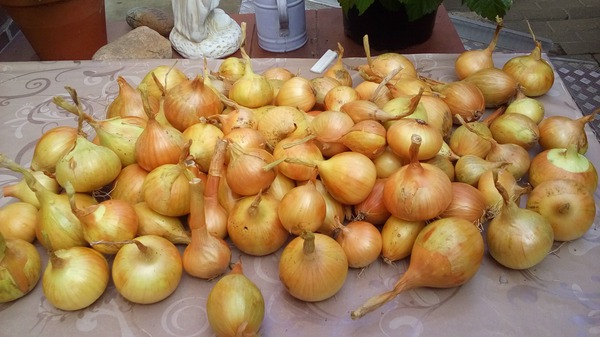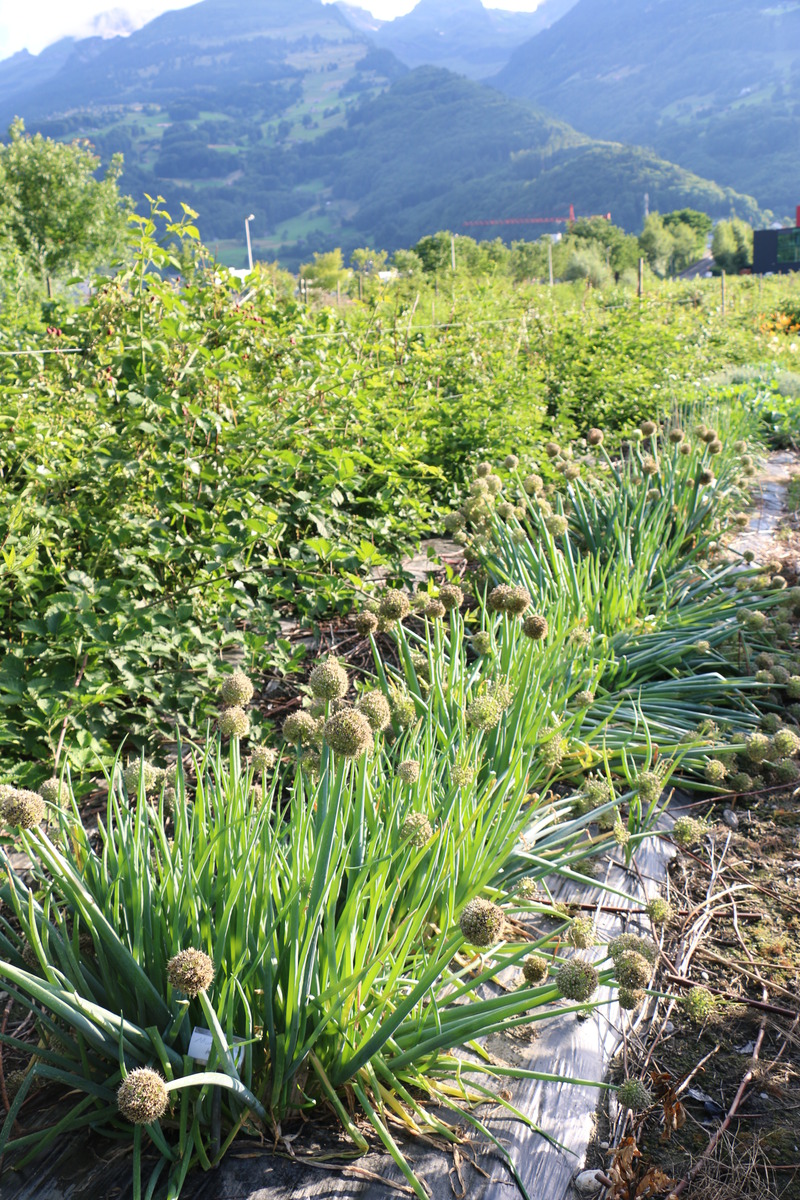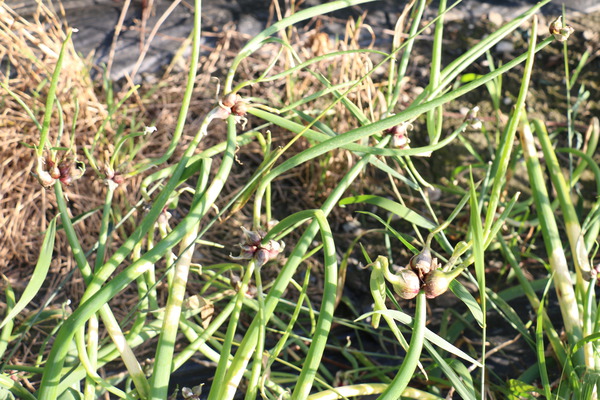 We added perennial Allium species to our EverVeg® group (wild cabbage, wasabi, rhubarb, artichoke, skirret, horseradish). These Allium species are perennial, hardy and can be harvested all year round. Let the following text surprise and inspire you. We will mention which Allium species can expand and complement an Eternal Vegetables® bed and enrich your assortment of young plants.
We added perennial Allium species to our EverVeg® group (wild cabbage, wasabi, rhubarb, artichoke, skirret, horseradish). These Allium species are perennial, hardy and can be harvested all year round. Let the following text surprise and inspire you. We will mention which Allium species can expand and complement an Eternal Vegetables® bed and enrich your assortment of young plants.
The great Allium diversity
The genus Allium (ornamental onion), including all subgenera and sections, currently comprises more than 900 species. Many of these species have been used as vegetables in kitchens around the world since pre-Christian times. Most of the species cultivated in the world today originated in Central Asia.
In addition to the species frequently used in the kitchen, such as onion (A. cepa), shallot (A. ascalonicum), broadleaf wild leek (A. ampeloprasum), chives (A. schoenoprasum) or the wild growing wild garlic (A. ursinum), there is an entire range of Allium species that have already found their way into many gardens as ornamental plants. These include, for example, the following: A. caeruleum, A. christophii, A. schubertii or A. atropurpureum, etc. to name just a few of the hundreds of varieties and species that are offered in the autumn bulb sale at garden centres or on online shops.

Picture: The diversity of ornamental Allium
Under the impression of this variety of ornamental onions (which, by the way, almost all are also edible), it is often forgotten that in addition to the well-known kitchen onions, bear's garlic, chives and leek, there are many other vegetable alliums. Here, we have focused our selection primarily on species that are particularly suitable as perpetual, perennially grown and harvested vegetables.
Incidentally, in 2013/2014 the genus 'Allium' was voted Vegetable of the Year in Germany by the 'Verein zur Erhaltung der Nutzpflanzenvielfalt e.V.' ('Association for the Preservation of Crop Diversity). This shows the importance of the Allium species grown as vegetables.

Picture: Allium, the vegetable of the year 2013/14 in Germany
The most important tips for successful cultivation of perennial onions in the garden
In order to ensure that the Allium species we offer are true to the character of the Eternal Vegetable® range and thus can be harvested for years, there are some points that the end consumer should consider in his/her garden:
- Humus, sandy soils/sites are preferred; if not possible, provide good drainage
- Leave dead foliage on the plants during the winter as protection and remove only in the spring
- Harvest only moderately in the year of planting (if planted in the spring) or in the first year of standing (if planted in autumn)
The Allium young plant assortment from Lubera Edibles
We currently offer 3 varieties and species of Allium in the Lubera Edibles young plant programme.
Allium fistulosum – Welsh onion

Picture: the Welsh Onion in our testing field
Compared to other onion species, the Welsh onion or bunching onion is a rather small bulb species. It forms, if at all, only very small bulbs at the base. Mostly it is not much more than a hardly noticeable thickening. But instead, the individual shoots form a lot of green plant mass. After planting, a real clump develops on the spot and over the years almost a real carpet of green, harvestable shoots. Other synonyms for this Allium species are 'spring onion' or 'long green onion'.
Welsh onion – the advantages
- Mild, onion-like flavour
- Can be used as a vegetable and as a spice
- All above-ground plant parts can be eaten – the actual bulb, the leaves and the flowers
- Winter hardy, perennial and sustainable – once planted, the harvest lasts for at least 10 years
Allium tuberosum – garlic chives

Picture: Garlic chives, the flowers are also edible
Garlic chives are the only exclusively deciduous Allium species in our assortment. This Allium species does not form harvestable bulbs like common garlic (Allium sativa). Here, the long and narrow leaves are harvested, but they are nevertheless used in the same way as garlic, since the leaves have a delicate and mild garlic flavour. In addition, the white flowers are also edible, which appear from the second half of summer. The flowers are characterised by their sweet and spicy flavour.
Garlic chives – the advantages
- Winter-hardy and perennial
- Garlic in leaf form, without permanent unpleasant bad breath
- Tasty, sweet flowers
- Bee plant in late summer
- Summer green
Allium viviparum (cepa var. proliferum) – tree onion

Picture: tree onion with the new bulbs at the end of the shoots
The tree onion is a special rarity among the bulbous plants. Unlike the other Allium species, the bulb does not form flowers, but simply skips this reproductive step and forms new bulbs directly on the flower stalks, so-called bulblets. So to speak, there is a new tier of bulbs in the air. Other names for this tree onion are topsetting onions or Egyptian onions. If these small bulbs are allowed to grow further, the shoot sinks to the ground, the bulblets form roots and in turn begin to grow again and form new bulblets. Another synonym – walking onion – shows just this effect: the bulb begins to run, spreads and can form at least a small and regularly growing clump. However, the clump can also be kept in check quite easily via harvesting the bulblets.
All parts of the bulb can be harvested: the bulb in the ground, the green part of the bulb and also the bulblets (if they are big enough).
Tree onion – the advantages
- Striking and interesting onion rarity
- Perennial and completely hardy
- Year-round harvesting of the different parts of the onion is possible
- Perfect onion species for permaculture; grows and spreads without human intervention
Additional information
Find out more about the production of Allium plants for trade and retail.
Production of Allium plants for trade and retail.
And here you can read more about other vegetables at Lubera Edibles®.
